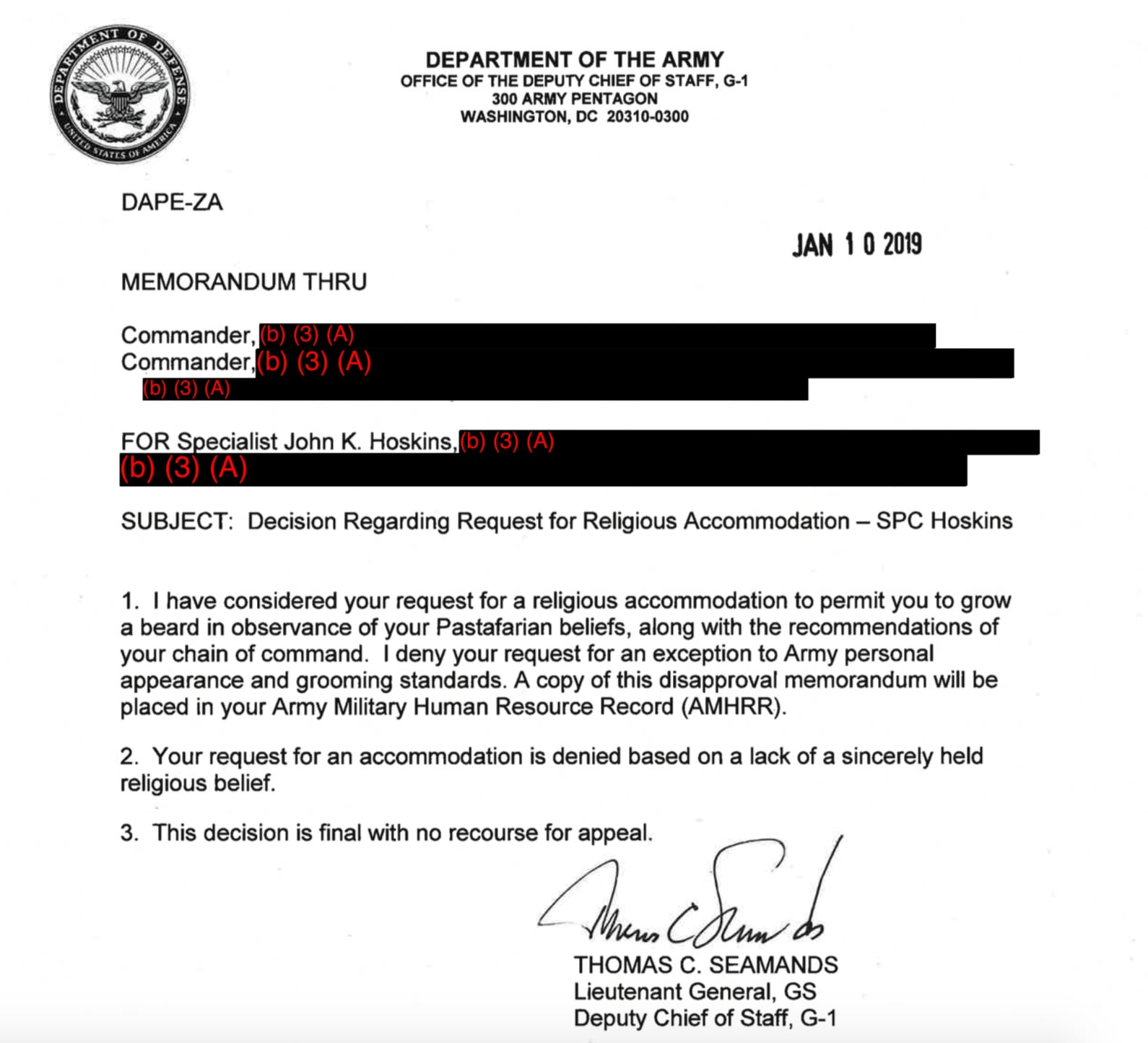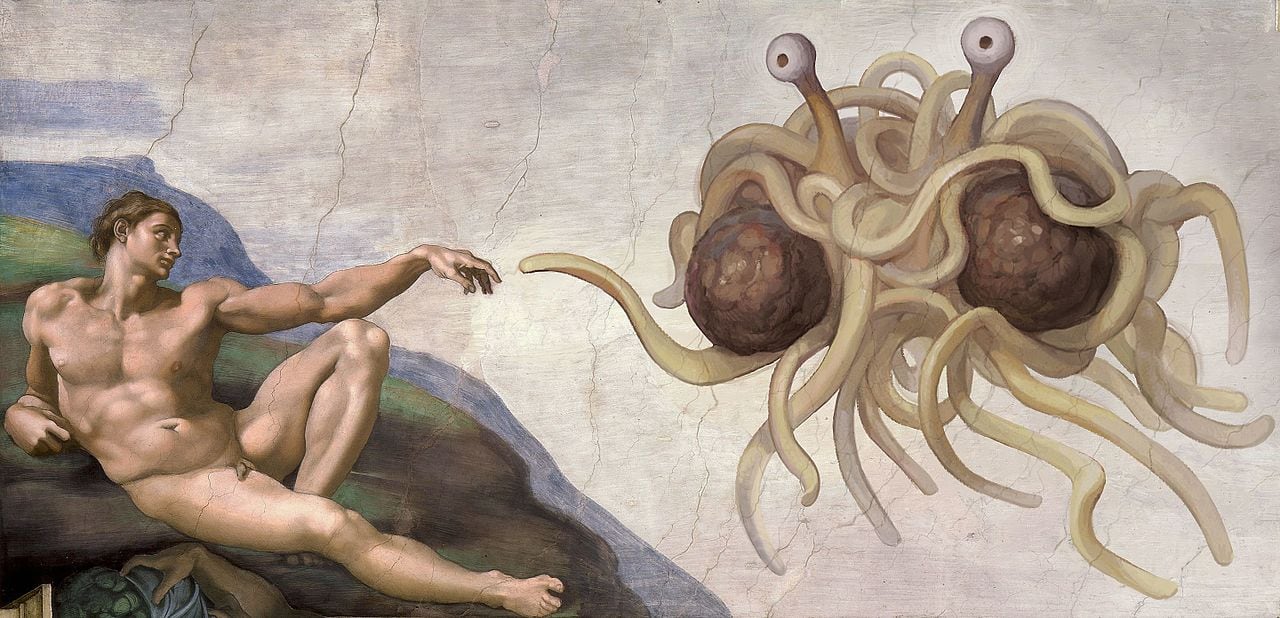Why are we here? What is our purpose? Why are U.S. service members not allowed to grow beards?
It is questions such as these, which tug at mankind’s innermost curiosities, that religions have endeavored to answer since the beginning of time.
For some of those faiths, proper observance necessitates the growth of facial hair.
The Army recognized this in 2017, acquiescing after years of beard-exemption requests and legal pressure from Sikh soldiers seeking to preserve religious traditions while wearing a U.S. uniform.
The Army’s ruling failed, however, to specify exactly which religions qualified for exemptions and which were simply out of luck, thus blurring the boundaries of the facial hair exemption process.
In April 2018, for example, a heathen soldier applied for an exemption under the updated policy and was approved for a beard waiver in accordance with his faith.
“I grant your accommodation, subject to the standards and limitations described below,” commander Col. Curtis Shroeder wrote in response to the heathen.
“In observance of your Heathen; Norse Pagan faith, you may wear a beard, in accordance with Army uniform and grooming standards for soldiers with approved religious accommodations.”
RELATED

With the approval of the heathen’s beard exemption, however, an additional complication arose. While Norse paganism encourages the blossoming of a good crumb catcher, it doesn’t require it.
Where, then, is the line in the sand drawn?
That question was at least partially answered this year when Spc. John Hoskins applied for a beard exemption as part of his strict devotion to the Church of the Flying Spaghetti Monster — a faith also known as “Pastafarianism.”
“This request is based on my deeply and sincerely held belief in the Pastafarian faith,” Hoskins wrote in his request to the Army. “It is my personally held belief that growing a beard will bring me closer to my God and bring me into his favor.”
This time the Army declined, but only after the decision on Hoskins’ request was elevated all the way to the desk of a deputy chief of staff.
“The Army takes pride in sustaining a culture where all personnel are treated with dignity and respect and not discriminated against based on race, color, religion, gender and national origin,” Cathy Brown Vandermaarel, an Army spokeswoman, told Army Times when asked about the decision to deny Hoskins’ request.
“While we cannot speak to the specifics of any particular case, religious accommodation can be disapproved if it is determined that the request is not based on a sincerely held religious belief or if the accommodation would create a specific hazard that cannot be reasonably mitigated.”

What was it about the sincerity of a Flying Spaghetti Monster devotee that aroused suspicion among Army policy makers?
Better yet, what, exactly, is the Church of the Flying Spaghetti Monster, and what tenets of the pasta-based faith propelled the Army to take a hard stand?
The religion’s first origin story — yes, there are two — tells of a drunk, tangled spaghetti monster, complemented by two impressive meatballs, who created the universe during a night of heavy drinking.
As one would expect, pirates became the invisible monster’s disciples, worshipping the deity for hundreds of years in secret before the religion’s 2005 discovery. To this day, dressing and talking like a pirate are encouraged forms of Pastafarian practice and serve as a reference to mankind’s origin, according to the website for the Church of the Flying Spaghetti Monster.
“Religious texts tell us that humans evolved from Pirates,” the website states. “Consider that so-called ‘science experts’ would have us believe humans evolved from primates, pointing towards the 99 percent shared DNA between humans and primates. But humans and Pirates share upwards of 99.9 percent of DNA.”
Profound and not wrong.
The second — and most commonly accepted origin story — is that in 2005, a physics graduate from Oregon named Bobby Henderson sent a letter to the Kansas State Board of Education to address concerns about a proposal to teach “intelligent design” in secondary schools.
Henderson argued in his letter that if intelligent design were to be included in the curriculum, so should every other religion, as to avoid isolating any singular faith.
Such discussions in schools, Henderson claimed, would be supported by as much scientific evidence as a curriculum that included lessons featuring a universe-spawning, invisible spaghetti monster.
When his letter was ignored, Henderson posted the document online, which inevitably went viral and prompted the emergence of a religion now practiced by “millions, if not thousands, of devout worshipers” like Hoskins, according to the Church’s page.
But despite legions of noodle worshippers, the Army refused to budge, turning a cold shoulder to a religion guided by “The 8 I’d Really Rather You Didn’ts” instead of the 10 Commandments, one that preaches the world is held in a “loving embrace" of their god’s “Noodly Appendage,” one in which followers wear colander strainers on their heads — even in official government-issued ID cards, and one that foretells of a heaven consisting of a beer volcano and a stripper factory.

The Church itself went as far as to include a letter to the Army in support of Hoskins’ faith-based beard waiver packet.
“The Church of the Flying Spaghetti Monster has always affirmed that reasonable measures be taken to allow Pastafarians to practice their beliefs,” the letter stated. “This includes, but is not limited to, the consumption of alcoholic beverages during personal hours, the growing of facial hair, the keeping and care of parrots and other birds of paradise, and the overuse of the word ‘ARRR!'
“Thank you for your cooperation and May You Be Touched by His Noodly Appendage.”
Questions of sincerity and Pastafarian facial hair aside — the faith does not require its members to grow a beard — Hoskins said he remains hopeful the Army will continue expanding the number of religions it recognizes.
“The Department of Defense currently recognizes over 185 different sects, branches, and denominations of Christianity,” he said. “I’m asking that they acknowledge one branch of deism.”
Whether that acknowledgement will ever come, as it did for the heathen soldier, is as much a mystery to Hoskins as his own place in the universe, what differentiates between right and wrong, and whether or not there is a supreme being watching over everything.
“I believe we as humans may never know, but it helps me to put a name to things," he said.
“The name that I — and others like me — have chosen to call the great maybe in the sky is the Flying Spaghetti Monster. He gives me courage when I’m scared, strength when I’m weak, and just makes my life a little bit more bearable. What else could you ask for from a religion?”
J.D. Simkins is the executive editor of Military Times and Defense News, and a Marine Corps veteran of the Iraq War.
Tags:
flying spaghetti monsterfsmchurch of the flying spaghetti monsterpastafarianpastafarianismheathen religiondeismnorse pagan soldiernorse paganism militarynorse heathenism navynavy nordic heathennavy sailor norse mythologynavy paganismnavy heathenismreligion in the militarymilitary religious policyreligion policy militaryarmy beard policymilitary beard policynavy beard policyarmy Sikh beardairman muslim beard waiverbeard waiver militaryWeston brahIn Other News















